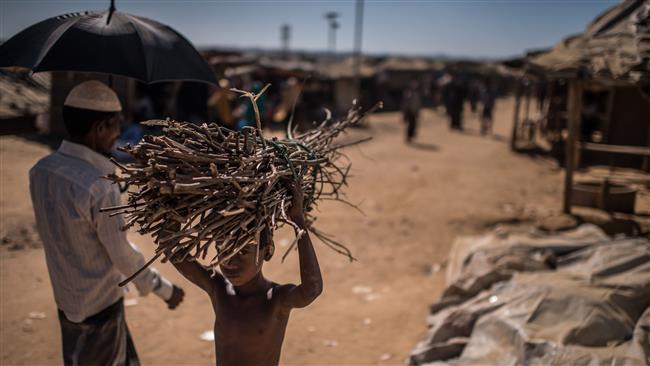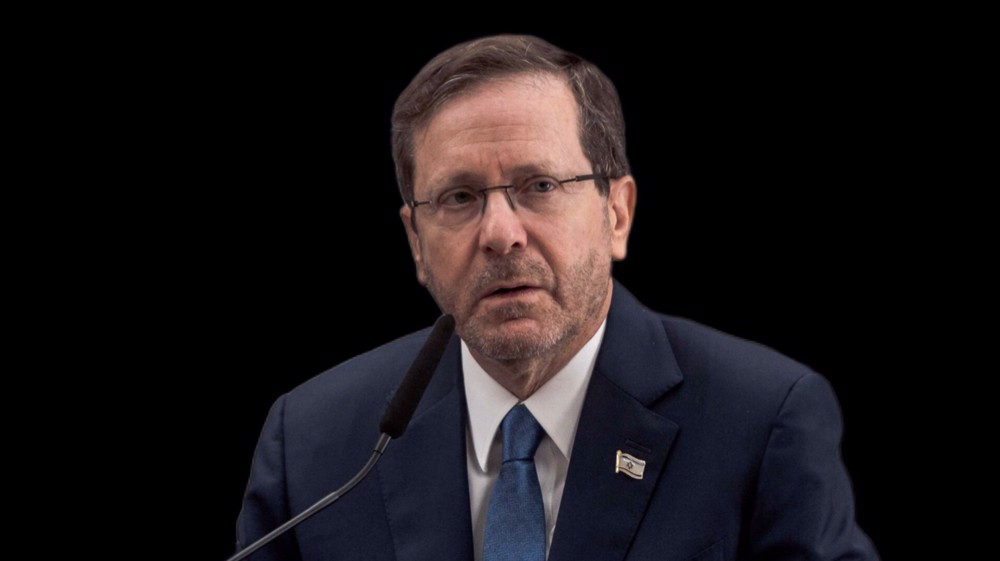Rohingya refugees still fleeing from Myanmar to Bangladesh, says UN refugee agency
The UN refugee agency says persecuted Rohingya Muslims continue to flee Myanmar for neighboring Bangladesh even though both countries set up a timetable last month to allow them to start to return home.
The UNHCR said on Thursday that 30,000 refugees arrived in Bangladesh last month while around 1,500 came last week.
"The refugee emergency in Bangladesh is the fastest-growing refugee crisis in the world," Kelly Clements, deputy high commissioner, said in the Bangladeshi capital Dhaka.
"Conditions in Myanmar's Rakhaine state are not in place to enable a safe and sustainable return ... refugees are still fleeing," she added, noting, "Most have little or nothing to go back to. Their homes and villages have been destroyed. Deep divisions between communities remain unaddressed and human access is inadequate."
On November 23, Bangladesh said it had reached a deal with Myanmar to repatriate Rohingya Muslim refugees within two months. The agreement between the two neighbors was signed after weeks of negotiations on details of the accord.

Stung by international criticism and accusations of ethnic cleansing of Rohingya Muslims, Myanmar in early November said it was ready to set up a repatriation process. Myanmar's de facto leader, Aung San Suu Kyi, has said the Rohingya who can prove they were resident in Myanmar would be accepted back.
Suu Kyi, who won the Nobel Peace Prize in 1991, has so far done almost nothing to end the violence in Rakhine despite increasing pressure from the international community.
Suu Kyi’s office, however, said that the deal with Bangladesh followed a formula set in a 1992 repatriation agreement inked by the two nations following an earlier surge of violence. Under that pact, Rohingya Muslims were required to provide residency documents, which few had, before being allowed to return to Myanmar.
It was not clear what specific steps would be taken to safely return the persecuted Rohingya to Myanmar, where they have faced death, torture, and rape by military soldiers and Buddhist mobs since late last year.
There was also no mention of whether the violence against the Rohingya would stop in Myanmar or whether the refugees would be forcefully returned.
Rohingya Muslims started fleeing Rakhine in October 2017, when the government launched a military campaign against them.

At least 625,000 Muslims have so far fled Myanmar into neighboring Bangladesh.
During the past three months, government troops, apart from raping, have been committing killings, arbitrary arrests, and mass arson of houses in hundreds of predominantly-Rohingya villages in Rakhine.
Myanmar’s government denies full citizenship to the Rohingya, branding them illegal immigrants from Bangladesh. Dhaka, in turn, regards the desperate refugees as Myanmarese. The Rohingya, however, track their ancestors many generations back in Myanmar.
The UN human rights chief, Zeid Ra'ad al-Hussein, recently suggested that “elements of genocide” are present in the campaign of violence against minority Rohingya Muslims in Buddhist-majority Myanmar.
The UN has already described the Rohingya as the most persecuted community in the world, calling the situation in Rakhine similar to “a textbook example of ethnic cleansing.”
VIDEO | No decisive win for Trump with Iran
VIDEO | Press TV's news headlines
VIDEO | Trump says navy near Iran because they ‘have to float someplace’
Trump tells India to buy Venezuelan oil instead of Iranian crude
UAE 'spy sheikh' invested in Trump-linked firm before his inauguration: Report
From Iraq war crimes to Gaza’s ‘board of peace’: Why Tony Blair belongs in The Hague
Iran considers European armies as terrorist groups: Parliament speaker
VIDEO | Arrests at Palestine demonstration in Frankfurt











 This makes it easy to access the Press TV website
This makes it easy to access the Press TV website